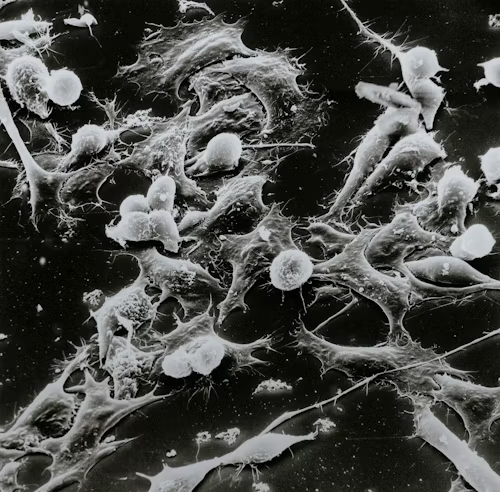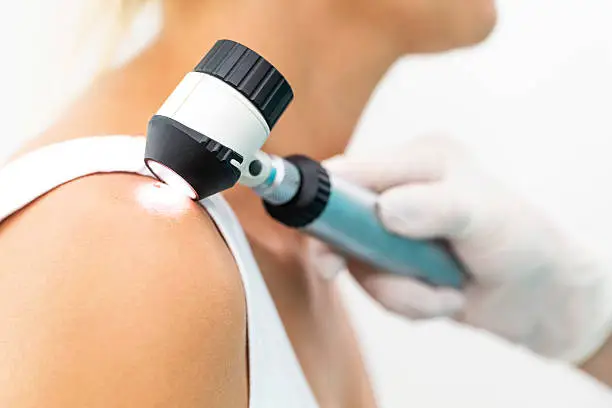The anus is the final part of the digestive tract, which allows excrement to exit the body. The development of anal cancer begins here. The tumor develops when certain cells within the anus or the anal canal, which is a passageway linking the anus to the rectum, start growing and multiplying uncontrollably. The tumor can either cause blockage in the canal or can spread to other tissues and organs.
Other similar symptoms of hemorrhoids can be due to anal cancer, including lumps on the anus or rectum bleeding. Changes like these can be taken to a medical professional who would determine whether it is caused by anal cancer. Even though most anal malignancies are not aggressive, finding them early is important since the sooner a cancer is detected, the greater is the survival percentage.
Anal cancer is rare. The lifetime risk of diagnosis is about 1 in 500. It is more likely to occur in older adults, with the average age at diagnosis in the early 60s
Types of Anal Cancer
Anal cancer comes in different types depending on where in the anus the cancer began. The types of anal cancer include:
- Squamous cell carcinoma: Around nine out of 10 cases of anal cancer in the United States are squamous cell carcinomas. It is the most common type of anal cancer. It begins in the squamous cells lining most parts of the anal canal and grows into deeper tissues beyond the surface.
- Adenocarcinoma: This is a rare type. It begins in cells of the anal gland that are below the moist lining membrane of the anal canal or in cells in the upper part of the anus, closer to the rectum. They are often diagnosed when the cancer has progressed.
- This disease is called melanoma when it is the type of anal cancer that begins inside melanocytes. Melanocytes are cells in skin around the anus that help produce the melanin pigment that gives color to this part of the body.
- Basal cell carcinoma: This develops in the perianal skin, and like melanoma, this is also often treated surgically. However, more commonly it develops in other body parts that are exposed to the sun, such as the hands and face.
Anal Cancer Symptoms
Anal cancer symptoms may include:
- Bleeding from the anus or rectum
- Discharge or drainage (of pus or mucus) from the anus
- A lump in the anus
- Pain or pressure around the anus
- Anal itching
- A change in your bowel habits
- Swollen lymph nodes in your anal area or groin
Because the symptoms occur in the last part of the digestive tract that healthcare providers can easily reach and examine, the cancer is often detected early

However, anal cancer does not present symptoms for everyone—about 20% of people do not experience symptoms. This is particularly applicable to the early stage when the cancer hasn’t grown or spread.
What Causes Anal Cancer?
All cancers, including anal cancer, occur because of cell mutations. These are changes in genes and DNA that regulate how cells grow and work. The actual cause of the mutation in the cells of the anus is unknown.
Risk Factors
Although it’s not clear why some individuals develop cell mutations in the anus, scientists have identified several factors that appear to increase risk.
Anal cancer is more common in white women and Black men. It also occurs more in people who are over 50 years old.
- Having an HPV infection: The human papillomavirus (HPV), a common sexually transmitted infection (STI), is linked to approximately 91% of anal cancers diagnosed in the United States annually.8. Although there are more than 150 different types of HPV, the most common cause of anal cancer, particularly squamous cell carcinomas, is HPV-16. HPV encodes proteins that can turn off tumor suppressor genes, which normally prevent cells from growing uncontrollably.
- Having many sex partners: People who have many sexual partners are likely to develop anal cancer. It is because they are more prone to STIs such as HPV and HIV, which also is a risk factor. Those who have anal intercourse may be more susceptible.
- Weakened immunity: When your immunity is low, it cannot fight infections. Viral infections such as HPV and HIV may become more active, which can cause cancer. Certain medications and treatments, including organ transplants, may lower your immunity, which can increase your risk of anal cancer.
- Smoking: This is a smoking behavior often associated with lung cancer, but the toxic substances that cause cancer within tobacco can easily spread throughout other parts of the body.
- Anal warts and other specific cancers: Patients who experienced genital warts or cervical, vulva, and vaginal cancer are more prone to anal cancer. It may be because there is a correlation between HPV infection and anal warts as well as these particular cancers.
Diagnosis
Following a physical examination and review of your personal and family health history, your health care provider may perform or order the following tests to make a diagnosis:5
- Digital rectal examination: The provider examines your anus and rectum by inserting a lubricated, gloved finger into the anal canal to feel for any abnormalities.
- Anoscopy: The practitioner will insert a short, hollow tube with a light on the end of the tube into your anus and examine the anus and rectum’s lower end for abnormalities.
- Prostoscopy: Similar to anoscopy, protoscopy involves a thin, tube-like instrument with a light and a lens at the end, which is used to examine the inside of the anus and rectum for abnormal areas. The tube can also come with a tool for removing tissue samples that will be checked in the lab for cancer.
- Imaging tests: These tests comprise endorectal ultrasound which employs sound waves, CT scan that employs X-rays, and MRI, employing radio waves to obtain rectal and anal canal imaging. They can be utilized for detecting cancer and checking out how far the cancer has spread.
- Biopsy: If your tests or examinations suggest that you might have anal cancer, your healthcare provider may want to take a tissue sample (biopsy) from the abnormal area. The sample will be sent to the laboratory to test whether cancer cells are present. A biopsy is the only definitive test for cancer.
Treatments
The goal of anal cancer treatment is to remove all the cancer cells. Various treatments are available and may depend on how advanced the cancer is, where the tumor is, and whether it responded well to or came back after initial treatment.
Chemoradiation
Generally, anal cancer is treated by a combination of chemotherapy and radiation therapy.
Radiation therapy is the use of high-energy beams to target and kill cancer cells. Usually, a machine outside the body sends radiation to the anus. In some instances, a tube of radioactive substances is put directly into the anus.

Chemotherapy kills or slows the growth of cancer cells. Chemotherapy is usually taken by pill, and can be put directly into the blood, allowing it to circulate throughout the body, and may also be administered intravenously.
Surgery
For small cancers, surgery is the treatment without using radiation and chemotherapy.
MedlinePlus. Anal cancer.
Your healthcare provider might suggest different kinds of surgeries based on the size and location of the tumor.
- Resection: This is the removal of a small cancer in the anus which has not spread to other parts. Some healthy tissue around the tumor will be removed to ensure all the cancer cells are eliminated.
- Abdominoperineal resection: This involves removal of the anus, rectum, and a small part of the bowel. The surgeon then constructs a colostomy, an opening in the lower belly so waste can be diverted from the body and collected into a pouch. This treatment may only be used when other treatment options don’t work
Immunotherapy
Immunotherapy: Immunotherapy is a method that tries to enhance the body’s immune system for its capabilities to fight the anal cancer cells. This treatment process can be administered intravenously. The medication contains materials from living organisms.
Dosing and duration of use will depend on the advanced nature of your cancer as well as how your body responds to the treatment.
Treatment with Clinical Trials
Constant researches are carried out on the testing of new drugs and treatments. Some such treatment under investigation in clinical trials include radiosensitizers that are drugs to sensitize the tumor cells for radiotherapy.
You can ask your doctor if there is a clinical trial on anal cancer treatment that you can enroll in and if they recommend you to do so. If you do enroll, you can withdraw at any time.
How To Prevent Anal Cancer
Since the cause of anal cancer is not known precisely, there is no known sure way to prevent it. However, through the following, you are likely to reduce your chances significantly
- Go for regular check-ups, especially if you have had an HPV or HIV infection
- Avoid smoking
- Consult your healthcare provider about the possibility of getting an HPV vaccine
- Take your HIV medicines—if you have HIV—to suppress the infection to undetectable levels
- Use condoms during sex
Complications
Anal cancer and its treatment may lead to complication like the following:
Decreased sex drive
- Bleeding per rectum
- Bowel dysfunction
- Inflammation of the lining of the rectum
- Radiation-related side effects like painful bowel, vaginal irritation, and skin changes in the area where radiation was administered
- Chemotherapy-related adverse effects, such as hair loss and nausea
- Wound infections, scar formation, stricture of the bowel, and fistula of the anus (abnormal connections between anus and other organs) after the surgery.
Living with Anal Cancer
Living with anal cancer will put you in the state of fear, anxiousness, and stressfulness. Diagnosing oneself with the condition is usually the hardest, but still full of hope.
If the cancer does not spread, it means that a person has an 83% chance of living five years or more. Where the cancer spreads to areas close by, the survival rate of living for five years after diagnosis is around 67%.17 Chances of recovery and remission also go higher with appropriate treatment-and well, treatments for cancer exist today to hit at many aspects of the growth mechanism.
Rely on your health care team for you to receive the best possible treatment. Be aware also that the more you understand your condition, the more proactive you can be about your own care and, possibly treatment. Seek the support from any family and friends who can help you move through difficult days or phases and always let yourself accept any kind of physical and emotional support necessary while being attentive to personal care and a strong health advocate.

